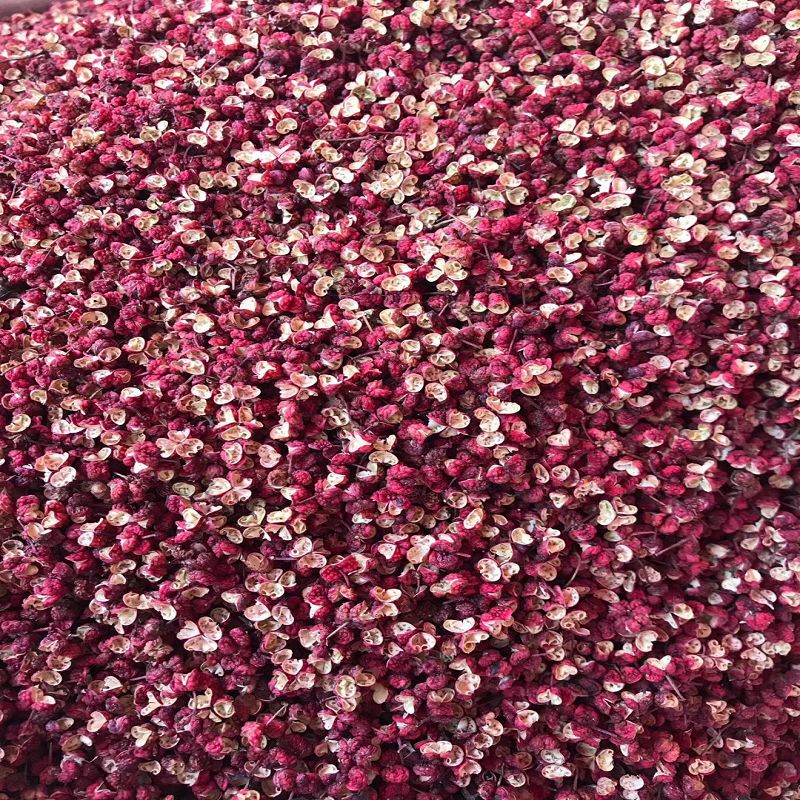Sichuan pepper, also spelled Szechuan pepper, is a spice that comes from the berries of the Zanthoxylum simulans or Zanthoxylum piperitum trees. Despite its name, Sichuan pepper is not a true pepper;
it belongs to the citrus family Rutaceae. Here are some key points about Sichuan pepper:

1.Flavor and Sensation: Sichuan pepper has a unique flavor profile. It imparts a citrusy, floral, and slightly sweet taste with a distinctive tingling or numbing sensation on the tongue.
This numbing effect is caused by compounds called hydroxy-alpha sanshools.
2.Appearance: The outer husk of Sichuan pepper is reddish-brown or pink, and the tiny seeds inside are what's used for culinary purposes.
3.Culinary Uses: Sichuan pepper is a key ingredient in Sichuan (Szechuan) cuisine, a style of Chinese cuisine known for its bold and spicy flavors. It is used in various dishes,
including the famous "Ma La" (numbing and spicy) dishes. Sichuan pepper is often used in combination with chili peppers to create a balanced heat and numbing effect.
4.Preparation: Before use, Sichuan pepper is often toasted in a dry pan to enhance its flavor. It is then ground or used in its whole form, depending on the dish.
5.Pairing: Sichuan pepper pairs well with a variety of ingredients, including meats, vegetables, and noodles. It is also used in spice blends, such as Chinese five-spice powder.
6.Health Benefits: In traditional Chinese medicine, Sichuan pepper has been associated with various health benefits, including improved digestion. However, its culinary use is more prominent than its medicinal use.
7.Global Usage: Sichuan pepper has gained popularity beyond China and is used in other Asian cuisines, as well as in some Western dishes where chefs appreciate its unique flavor profile and the tingling sensation it provides.
8.Storage: Like many spices, Sichuan pepper should be stored in a cool, dark place in an airtight container to preserve its flavor and potency.
Sichuan pepper adds a distinctive and complex element to dishes, contributing both flavor and a unique mouth-numbing sensation that sets it apart from other spices.
Its use is not limited to Sichuan cuisine, and it has found its way into diverse culinary applications around the world.